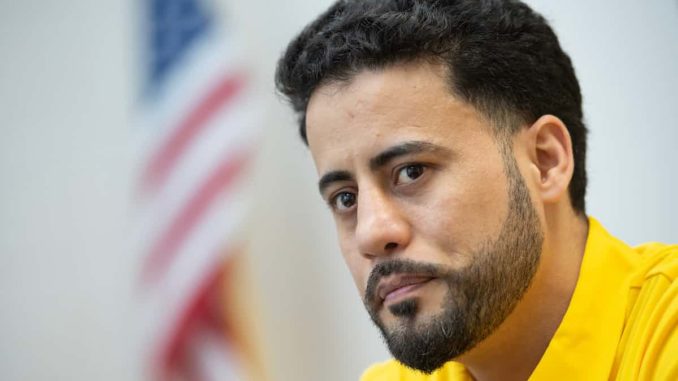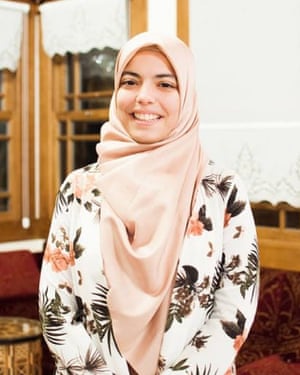
Ali Alsubai got the news through a text alert. “Supreme court upholds Trump’s travel ban,” it said. The news filled him with sadness.
The 21-year-old had been among the thousands of Yemeni New Yorkers to descend on Brooklyn’s Borough Hall in the winter of last year and pray outside, dropping their work around the city to protest when Trump first announced his contentious and chaotic ban in January 2017.
Almost 18 months and several court battles later, Tuesday’s supreme court ruling declared that Trump’s third version of the order was lawful. Word of the decision landed in Bay Ridge with a dull thud. The suburb, with its large concentration of Yemenis, is one of Brooklyn’s most diverse neighbourhoods and had reacted with fury and disbelief when the ban was first announced.
Alsubai, who works at the Yemen Cafe on the suburb’s main street, admits he had not expected the supreme court ruling to go any other way and had grown somewhat confused by the ban’s various incarnations over the past year.

“Some people just don’t understand what’s been going on. One day it’s cancelled, one day it’s not,” he says, as customers tuck into baba ghanoush and flatbreads in his family’s restaurant.
Despite the confusion, Trump’s controversial order, which targets travellers from five Muslim-majority countries and was labelled Islamophobic by those who challenged it in court, has had an effect on everyone in the community, he says.
Alsubai, a US citizen who came to America when he was three months old, has a cousin whose mother is stranded in the Yemeni capital, Sana’a, as the country’s bitter civil war continues and her visa application stalls.
“He’s just trying to get his mom out of the war,” he says. “It’s awful to see what he’s going through. But it’s not just him affected. It’s Muslims spread out over the US.”
Just hours after the court’s 5-4 ruling, which maintained the order that has been in effect since December 2017, Muslim Americans around the country spoke to the Guardian of their sadness and disappointment.
Abrar Omeish, a 23-year-old Libyan American from Fairfax, Virginia, had woken up nervously on Tuesday, expecting the ruling to come down in the morning.
“I felt a pit in my stomach as I heard it,” she said.
Omeish, who has campaigned against the ban for months in the nation’s capital, got married last weekend. More than a dozen members of her wife’s close family, all living in Libya, were not able to attend the ceremony due to the ban. She was devastated.

“It’s like we have to live as second-class citizens. We’re not allowed to access our families just because we happen to be from a certain background, because we’re Muslim,” she said.
Following weeks of international outcry over the Trump administration’s separation of families entering the US at the southern border, Omeish’s story, like countless others around the country, is a reminder the administration has been separating families from the Muslim world for over half a year.
“You know,” says Omeish, who is launching a career in local politics this year, “the supreme court has been wrong before, I have to remind myself on that. Both morally and on social justice and civil rights grounds. But, regardless, we have not reached a point in our country where we learn from our history, and where we can make the right decisions despite the fear and pressure that’s out there.”
In Hamtramck, Michigan, purportedly the first city in the US to elect a Muslim majority council, Muad Almogari was equally despondent.
The 32-year-old Yemeni American has an older sister languishing in the Yemeni province of Ibb. Her visa petition will probably be held in an indefinite limbo following Tuesday’s ruling, and Almogari worries she and her five children could be killed in the interim.
He heard the news as he prepared to leave the US to visit her in Yemen. The journey will take him two full days and will cost the middle school teacher, who works a second job to make ends meet, thousands of dollars.
“I think the ruling is just going to make our life much harder than it was,” he says. “I didn’t know this country, which was originally based on equality and human rights, and justice for all, was about to be ruled by someone like Donald Trump, who is willing to throw all of that away to satisfy his ego.”
He couldn’t bring himself to tell his sister, Afriqiya, of the ruling over the phone, and feels it is only right to tell her face-to-face so he can explain its implications in full.
END

Be the first to comment